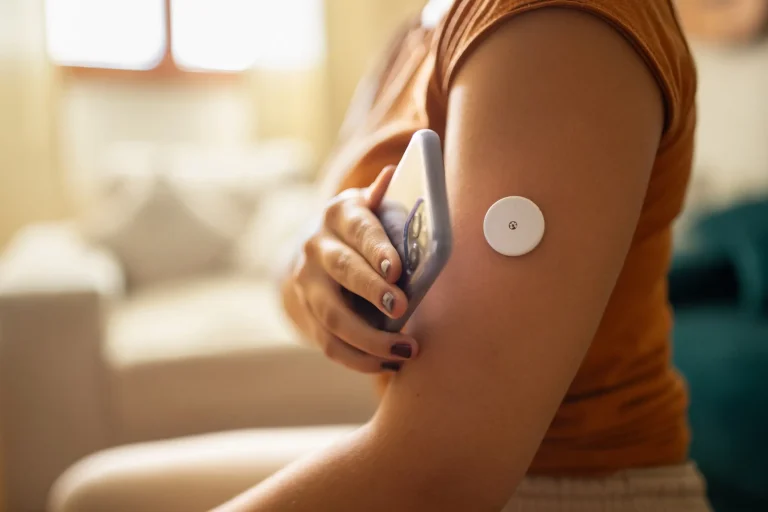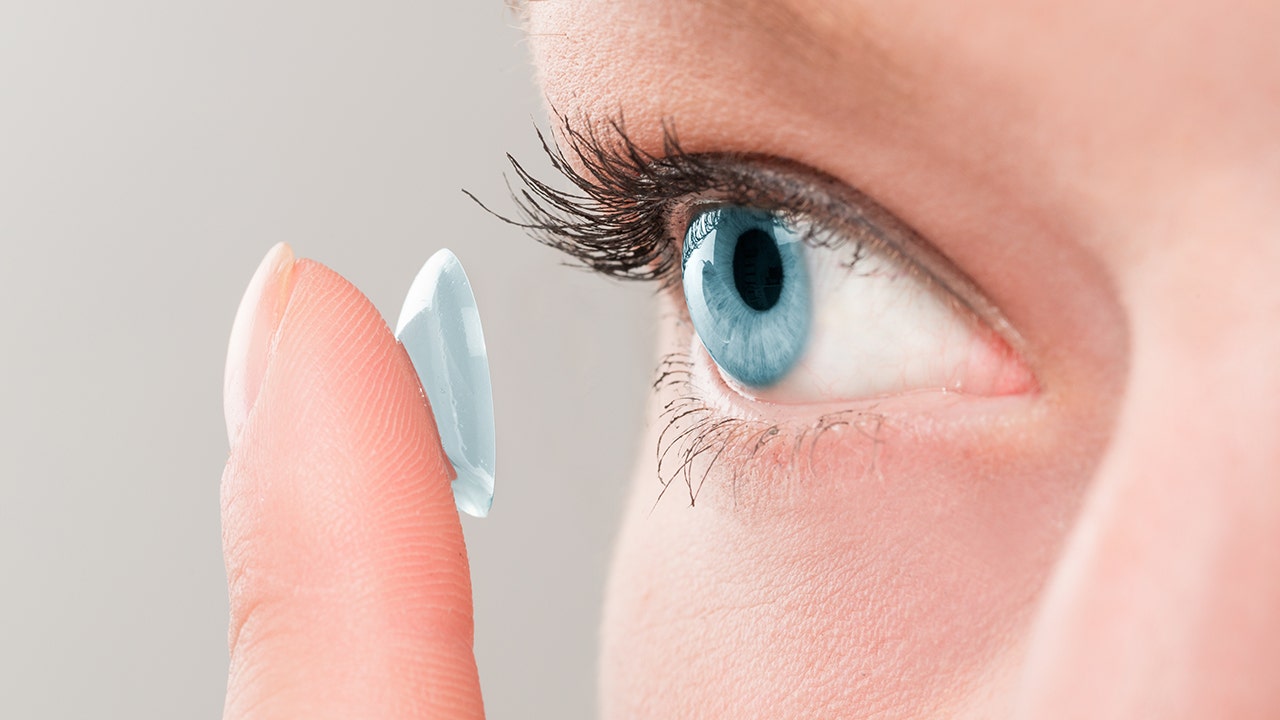
New research has revealed that various types of soft contact lenses in the U.S. could contain toxic “forever chemicals.”
That’s according to a recent consumer study by Mamavation – an “eco-wellness product investigation community” powered by a California mother – in partnership with Environmental Health News, a publication of Environmental Health Sciences, which is a nonprofit and nonpartisan organization.
For the study, 18 sets of popular soft contact lenses were sent to an EPA-certified lab to search for indications of per- and polyfluoroalkyl substances (PFAS).
EYE SPY A BIG PROBLEM: CALIFORNIA DOCTOR REMOVES 23 CONTACT LENSES FROM ONE WOMAN’S EYE
These are also known as “forever chemicals” because they don’t break down in the body or the environment, according to the Harvard T.H. Chan School of Public Health in Boston.
All 18 lenses came back with various levels of organic fluorine, a marker for PFAS, according to the study.
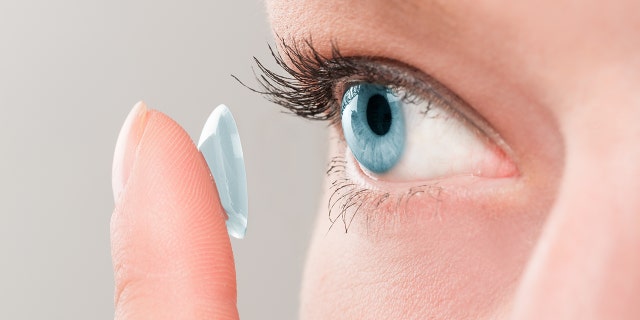
New research has revealed that multiple varieties of soft contact lenses in the U.S. could contain toxic “forever chemicals.” (iStock)
Brands such as Acuvue, Alcon and CooperVision were all found to have different levels of PFAS, according to the research.
Fox News Digital reached out to Johnson & Johnson (maker of Acuvue lenses), Alcon and CooperVision for comment on the new study’s findings.
Forty-four percent of the contact lenses that were tested in the study contained more than 4,000 parts per million (ppm) organic fluorine, which is equivalent to eight out of 18 products.
EYE DROPS AND SAFETY ISSUES: HERE’S WHAT YOU NEED TO KNOW NOW
PFAS are most often used in products as stain-resistant, oil-resistant and water-resistant chemicals, Mamavation reported.
The study findings said PFAS are considered “persistent and toxic” with the potential to last for “decades” in the human body.

Forty-four percent of contact lenses tested contained more than 4,000 parts per million organic fluorine, equivalent to eight out of 18 products. (iStock)
Exposure to PFAS could cause lower immunity, increased cholesterol levels, metabolic diseases like obesity and diabetes, cardiovascular disease, lowered fertility in men and women, increased risk of kidney and testicular cancers, and other side effects, according to Mamavation.
“It’s imperative to reduce the amount of PFAS you are exposed to from food, water and personal care products such as eye contacts,” Mamavation wrote on its website.
“I have not found that individuals who wear contact lenses are affected by eye diseases more than those who do not.”
Environmental Health Sciences chief scientist Pete Myers told Mamavation that assuming this level of organic fluorine in contact lenses is safe is “laughable.”
SCIENTISTS REVEAL SIMPLE NEW PROCESS THAT MAY HELP ELIMINATE TOXIC CHEMICALS FROM EVERYDAY ITEMS
“Last summer, the EPA issued health advisories in drinking [water] for four common PFAS, ranging from 0.004 parts per trillion (ppt) to 2000 ppt,” he said, citing an example.
“The EPA considers exposure beneath these thresholds to be safe for drinking water.”
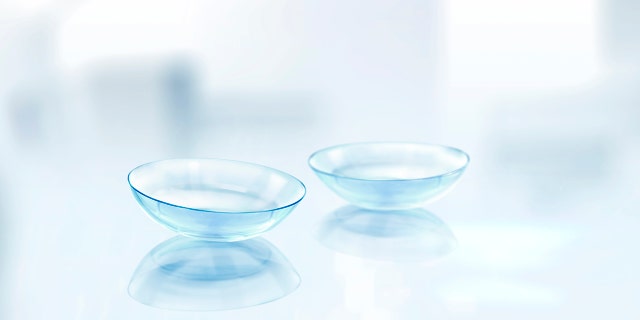
“It’s imperative to reduce the amount of PFAS you are exposed to from food, water and personal care products such as eye contacts,” Mamavation wrote on its website. (iStock)
“Comparing drinking levels in water to concentrations in contact lenses is like comparing apples to oranges,” he said.
“It’s worth noting that all the contact lenses tested exceeded 100 ppm, which is equivalent to 100,000,000 ppt or 50,000 times higher than the highest level deemed safe in drinking water by the EPA,” he also said.
“Comparing drinking levels in water to concentrations in contact lenses is like comparing apples to oranges.”
However, holistic optometrist Dr. Marc Grossman was not quite as concerned about PFAS content in contacts.
In an email to Fox News Digital, New York-based Grossman said recent studies have shown that PFAS are common compounds found in a variety of products used by consumers daily.
CHEMICALS IN WATER AND HOUSEHOLD OBJECTS COULD REDUCE CHANCES OF PREGNANCY, LIVE BIRTHS: NEW STUDY
“Because each lens manufacturer uses different materials, these studies do not clearly state if there are contact lenses that contain fewer chemicals than others,” he said.
“In 43 years of practice, I have not found that individuals who wear contact lenses are affected by eye diseases more than those who do not,” Grossman added.
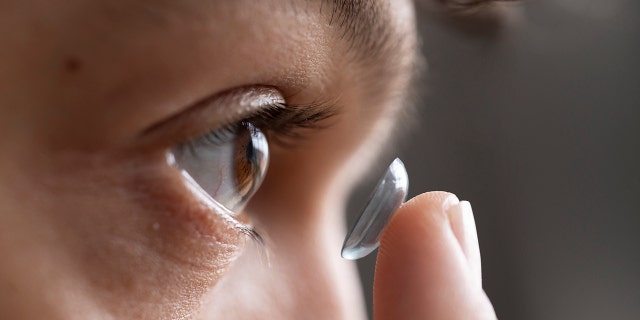
One holistic optometrist was not quite as concerned about PFAS content in contact lenses. (iStock)
Grossman added that although contact lenses come in direct contact with the eye, there is “no indication that they directly cause any eye health issues or diseases.”
CLICK HERE TO SIGN UP FOR OUR HEALTH NEWSLETTER
“Wearing contact lenses is a personal choice,” he continued. “Not wearing them creates less direct exposure to any chemicals that make up contact lenses.”
Contact lense wearers should practice good hygiene to avoid eye infections.
For contact lens wearers who are worried about exposure to chemicals, Grossman suggested doing a detox by placing castor oil compresses on the skin over the liver or using herbs like milk thistle or dandelion.
CLICK HERE TO GET THE FOX NEWS APP
“For those with chemical or EMF (electromagnetic field) sensitivities, they will want to make the decision to wear contacts carefully,” he said.
The eye is one of the most sensitive areas of the human body – and researchers suggested that contact wearers practice good hygiene to avoid eye infections, such as washing hands, removing the lenses for sleep and never reusing eye contact solution, as Fox17 also noted about the new study.

